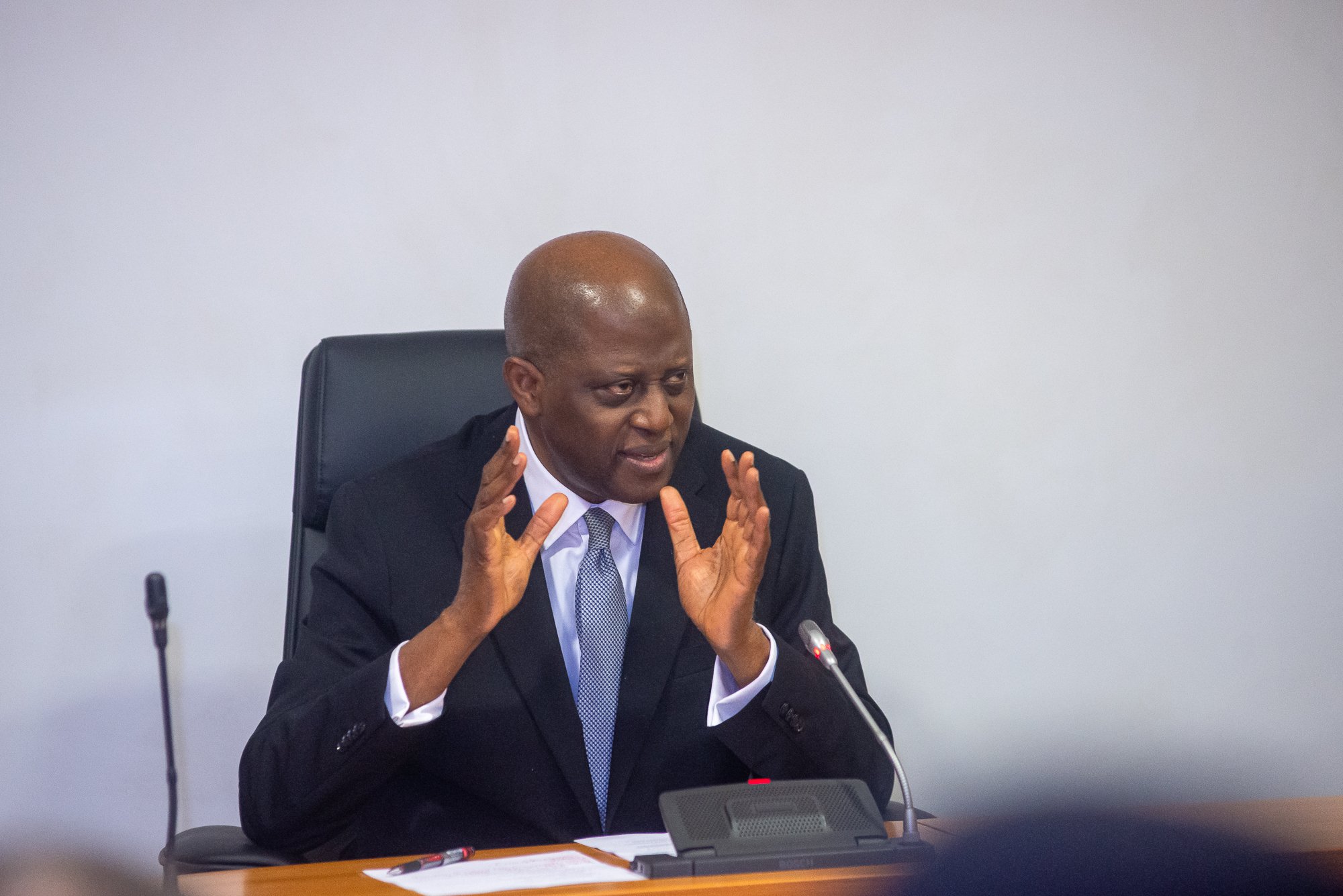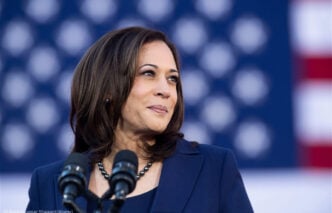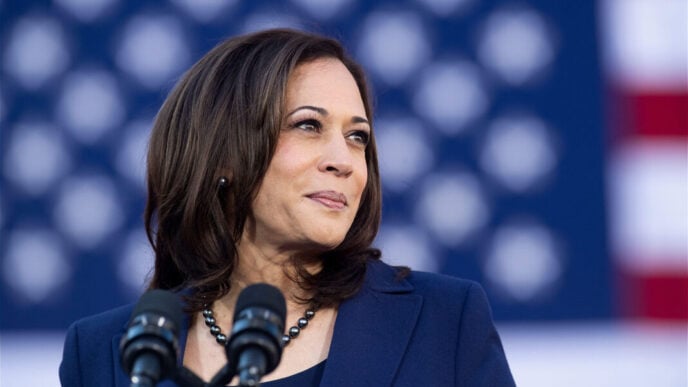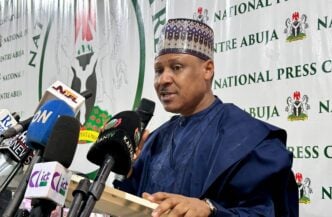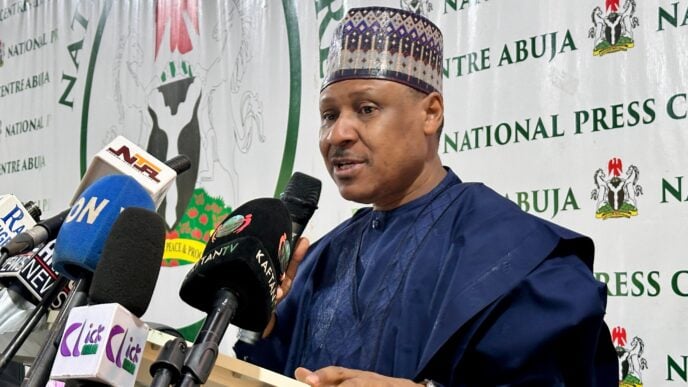Nigeria’s exit from the grey list of the Financial Action Task Force (FATF) will restore global confidence in its financial system and ease cross-border transactions, according to experts in the financial sector.
On Friday, the FATF announced the delisting of Nigeria from its grey list of countries with deficiencies in anti-money laundering and counter-terrorism financing frameworks.
Countries on the list typically face increased scrutiny by the task force.
Reacting to the development, Olugbenga Agboola, co-founder and chief executive officer (CEO) of Flutterwave, described the delisting as “a massive win” for the Nigerian economy.
Advertisement
“@theflutterwave is Africa’s most licensed non-bank financial institution with 50+ licenses + massive investment in keeping compliance at the highest standards, this grey listing made cross-border payments/settlements harder & more expensive,” Agboola wrote on X.
“This delisting restores confidence, lowers remittance & xborder costs, and unlocks faster, cheaper payments to & from Nigeria.”
Nigeria’s exit from the FATF Grey List is a massive win for our economy 🇳🇬.@theflutterwave is Africa’s most licensed non-bank financial institution with 50+ licenses + massive investment in keeping compliance at the highest standards, this grey listing made cross-border… https://t.co/0ErudVfYkr
Advertisement— GB 🦋 (@TechProd_Arch) October 24, 2025
The Flutterwave CEO praised the central bank and Nigeria’s finance ministry and “everyone who made this happen”.
He added that the delisting sends a strong signal that Nigeria is back on the path of trust, transparency, and financial leadership.
Advertisement
Also celebrating the development on X, Tayo Oviosu, the founder and CEO of Paga, described it as “the best news today.”
“Congrats to everyone at NFIU, CBN, and the entire financial industry. We worked hard to get here,” Oviosu said.
“This is a big deal because it opens up the country for FDI and engagement from the West, especially.”
🚨 The best news today, guys…Nigeria is off the FATF grey list!
AdvertisementCongrats to everyone at NFIU, CBN, and the entire financial industry. We worked hard to get here.
This is a big deal because it opens up the country for FDI and enagement from the West especially pic.twitter.com/1MbgchYCPV
Advertisement— Tayo Oviosu 🗽 (@oviosu) October 24, 2025
Advertisement
‘MORE COUNTRIES WILL ACCEPT NIGERIAN DEBIT CARDS’
The FATF added Nigeria to the watchlist in 2023, a year after banks suspended international transactions on naira debit cards.
Advertisement
Although this was due to foreign exchange challenges at the time, earlier reports said some merchants in Europe and the United States (US) rejected electronic transactions originating from Nigerian cards due to the prevalence of large-scale fraud.
Ayokunle Olubunmi, head of financial institutions ratings at Agusto & Co, told TheCable that Nigeria’s removal from the grey list is a positive turning point for both the economy and citizens.
“For individual Nigerians, transactions will not attract the level scrutiny we currently have. More countries and platforms will now accept our cards,” he said.
“I also expect the rigorous checks and suspicions Nigerians are subjected to at foreign airports to reduce.”
For the economy, Olubunmi said the development would further stimulate foreign portfolio investment.
“Some investors interested in Nigeria were constrained by the grey list from investing in the country. This development could also accelerate Nigeria’s inclusion in the Morgan Stanley Index,” he said.
“This will support the external reserves and ultimately the exchange rate. Nigeria’s removal could also herald foreign direct investments which will create jobs.”
‘REMOVAL FROM GREY LIST WILL STIMULATE FOREIGN DIRECT INVESTMENTS’
Abuede Charles, an economist, said the development is a “welcome one, and casts a brighter light on Nigeria’s sovereign outlook”.
The economist said the country’s removal from the grey list positions it more favourably on the global investment radar.
“We believe this delisting will likely stimulate renewed foreign direct investments (FDI) into Nigeria,” the economist said.
“For years, the perception of Nigeria as a corruption-prone environment has hampered capital inflows into key sectors and clogged the investment pipeline.
“Being on the grey list came with clear disadvantages — from constrained capital access to higher due diligence costs and slower development prospects. However, this removal signals a turning point.”
According to Charles, the move is expected to boost Nigeria’s sovereign rating over time, strengthen investor confidence, and attract greater investment inflows, particularly in the financial services sector.
He added that the delisting is also expected to support a bullish sentiment toward Nigeria’s sovereign instruments, as market confidence “continues to rebuild on improved credibility and governance reforms”.







